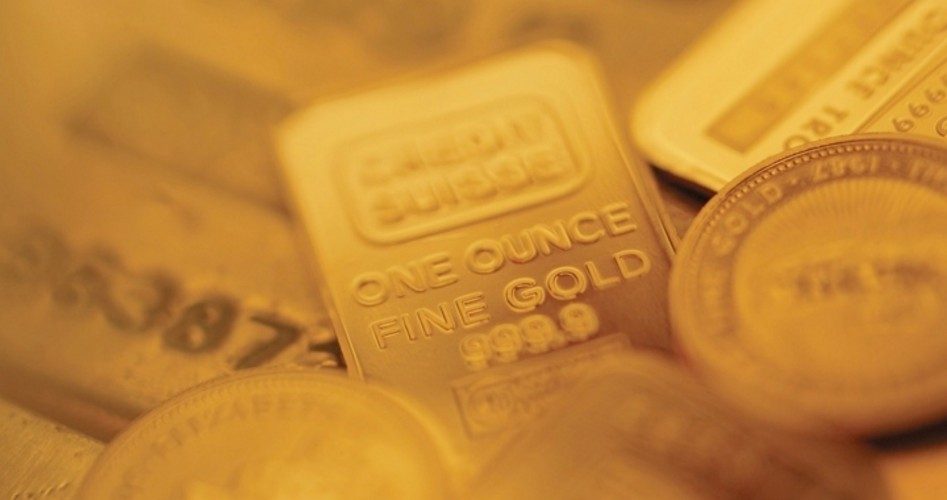
Citing concerns about about a possible economic crisis and a desire for monetary stability, the State of Tennessee is now officially on record supporting the establishment of a depository facility to house gold and other precious metals for Tennesseans. In a remarkable example of bi-partisanship on serious issues, the resolution passed unanimously in both the state House and Senate before being signed by the governor. But more work remains, according to pro-Constitution and sound money activists supporting the efforts.
Analysts and supporters said the measure was an important step on the road to restoring honest money and a stable monetary system based on gold and silver in Tennessee and beyond. As the Federal Reserve banking cartel continues to debase the U.S. dollar and enrich its cronies at the expense of everyday Americans, other states are also exploring and pursuing similar efforts — and in some cases even more ambitious ones, such as a law in Texas establishing a gold-backed bank that lawmakers said would challenge the Federal Reserve’s monopoly on currency.
The measure in Tennessee, House Joint Resolution 516, puts the state on record in official support of “the safekeeping and storage of gold and precious metal bullion and coins in a Tennessee bullion depository or other such similar facility.” The resolution also supports the security that such an institution would provide.
According to the measure, the “unpredictable national economy” has led to efforts to achieve “increased monetary stability and liquidity and greater financial security in the event of a national or international financial crisis.” However, despite successful efforts in other states to expand and facilitate commerce in precious metals, the Tennessee resolution does not specifically call for or facilitate the use of precious metals as currency or legal tender.
Still, HJR 516 does acknowledge that concerns about America’s economic health have spurred Tennesseans to acquire gold, silver, and other assets that cannot be quietly confiscated via inflation at the whims of central bankers. “In response to the state of our national economy, individuals and entities have purchased gold and other precious metals in the form of bullion and coins in order to achieve the desired financial security and stability,” explains the measure.
Because citizens have been buying up gold and other precious metals, being able to ensure the “security and safekeeping” of their assets is “paramount to their utilization as investments in the event of an economic crisis,” the final measure declared, implicitly suggesting that the commodities would be used as money in the event of serious turmoil. As such, Tennessee lawmakers decided to support the establishment of an institution in the state to help citizens protect their gold and other precious metals.
HJR 516 was introduced by Tennessee Rep. Bud Hulsey, a Republican and retired lawman from Kingsport, in late January. The bipartisan measure was passed overwhelmingly in March, with 95 votes in favor and none opposed. The next month, it passed unanimously in the Tennessee Senate, with zero “nay” votes and 26 senators in favor of the resolution. On April 27, Gov. Bill Haslam, a Republican, signed it.
Despite its national significance, the media missed the story. However, in a series of articles on its webpage, the non-partisan Tenth Amendment Center, a national group that works to rein in Washington, D.C., and restore the proper constitutional balance between federal and state power, celebrated the measure. After the governor signed it, TAC Communications Director Mike Maharrey said the resolution is “setting the stage for the creation of a state bullion depository, an important first step toward establishing gold and silver as money in the state.”
However, more work remains to be done, he said. “As the next step, a bill to establish a depository should be introduced and passed during the next legislative session,” continued Maharrey, who is also an author of a book on restoring liberty. “There appears to be no barriers to getting this done. Now it’s up to activists in Tennessee to keep the pressure on and ensure the legislators and governor follow through.”
Separately, Maharrey called for state efforts to nullify the Federal Reserve’s monopoly on legal tender currency. He also pushed for state adherence to Article I, Section 10 of the U.S. Constitution, which prohibits states from making anything but gold and silver into legal tender. “Creation of a Tennessee Gold Depository would take a step toward that constitutional requirement, ignored for decades in every state,” he continued. “Such a tactic would undermine the monopoly the Federal Reserve System by introducing competition into the monetary system.”
Making gold and silver more easy to use as currency, he added, could bring about important benefits to Tennessee and its people. And there is a bill in Tennessee that would move the state in that direction. However, while HJR 516 passed by massive margins, another piece of legislation that would actually help expand the use of gold and silver in commerce has not yet been approved. Introduced in January by Senator Frank Niceley, Senate Bill 1610 (SB1610) would exempt gold and silver bullion from sales tax. Numerous other states have taken similar action to help expand the use of precious metals in commerce.
It is not the first time lawmakers in the Volunteer State have considered the issue of monetary stability and how Tennessee might prepare for potential crises down the line. In fact, just five years ago, the legislature, joining other states pursuing similar efforts, considered whether the state might adopt an alternative currency in case the Federal Reserve System broke down. In response to questions from attorney Joe Wolverton of The New American, Tennessee State Senator Bill Ketron (R-Murfreesboro), the sponsor of the resolution, offered his thoughts on why it was wise to consider the future.
“We now owe China in the trillions and Japan is second. What would happen if there was another cataclysmic event? I’m not Chicken Little saying the sky is falling, but prudent businesses are always prepared for the worst-case scenario,” Senator Ketron explained. “The present monetary and banking systems of the United States, centered around the Federal Reserve System, have come under ever-increasing strain during the last several years, and will be exposed to ever-increasing and predictably debilitating strain in the years to come.”
Senator Ketron also pointed out correctly that many widely recognized experts have predicted the “inevitable destruction of the Federal Reserve System’s currency through hyperinflation in the foreseeable future.” And in the event of an economic calamity, if the state is not prepared, its finances and economy could be thrown into chaos, with serious implications for the lives, health, and prosperity of Tennesseans. But by adopting a potential alternative sound currency, the state would be able to avoid, or at least mitigate, many of the problems that would inevitably accompany a breakdown of the Federal Reserve and its increasingly discredited fiat (unbacked) currency.
Lawmakers in Tennessee are hardly the only ones thinking ahead to the future — and projecting the lines. After all, the out-of-control central bank has now been thoroughly exposed showering trillions on its cronies around the world and bailing out mega-banks with debt-based currency conjured into existence out of thin air. As The New American has documented extensively, numerous states, including Utah, New Hampshire, Oklahoma, Virginia, Arizona, and others, have also adopted or considered measures in recent years related to creating, legalizing, or expanding the use of sound-currency alternatives such as gold and silver.
In Texas, state officials are currently taking bids from companies to build a gold-backed bank and depository institution for the state and its citizens, as well as for anyone who would like to store their precious metals there or use the bank’s services. According to Texas Representative Giovanni Capriglione, who authored and sponsored the law that was adopted last year, the bank will allow depositors to bypass the Federal Reserve System and its fiat currency in banking and commerce — all while enjoying the safety and stability that Texas and hard assets can provide.
In an interview with the popular TruNews radio program, the state lawmaker explained that the bank would be much safer and more reliable than traditional banks, for a number of reasons. “We set up a system of depository agents so you can have any corporation, any group, basically start a depository agent, and they can send and receive through this depository system, outside of the Federal Reserve System,” Capriglione explained. The bank has garnered interest from around the world, he added.
Of course, Tennessee’s latest resolution, state laws making gold and silver legal tender, and even Texas’ gold bank are only small steps on the road toward eventually restoring sound currency in the United States. But as the economy continues to deteriorate, notwithstanding the bogus claims of the federal government and the banking cartel styling itself the “Federal Reserve” about an alleged “recovery,” those actions can help point the way for other states looking to restore economic sanity.
The “Fed,” as the central bank is known, has almost destroyed the purchasing power of the U.S. dollar, and the U.S. economy along with it, all to benefit the establishment, the mega-banks, and their cronies. But as states across America are proving right now, that does not have to be the end of the story.
Alex Newman is a correspondent for The New American, covering economics, education, politics, and more. Follow him on Twitter @ALEXNEWMAN_JOU. He can be reached at [email protected].
Related articles:
Texas Launches Gold-backed Bank, Challenging Federal Reserve
Tenn. Joins States Considering Alternate Currency Legislation
Texas Contracts to Build Nation’s First State Gold Bullion Depository
Gold and Silver Currency Bills: Will States Nullify the Fed’s Money Monopoly?
Arizona Legislature Approves Gold and Silver as Money
Virginia Considers Dollar Collapse, Gold Currency
Oklahoma Affirms Gold and Silver as Legal Tender
Gold, Silver Now Legal Tender in Utah
Fed Manipulations in the Crosshairs
The Federal Reserve: Bankers for the New World Order
Iceland Considers Stripping Power to Create Currency From Banks



